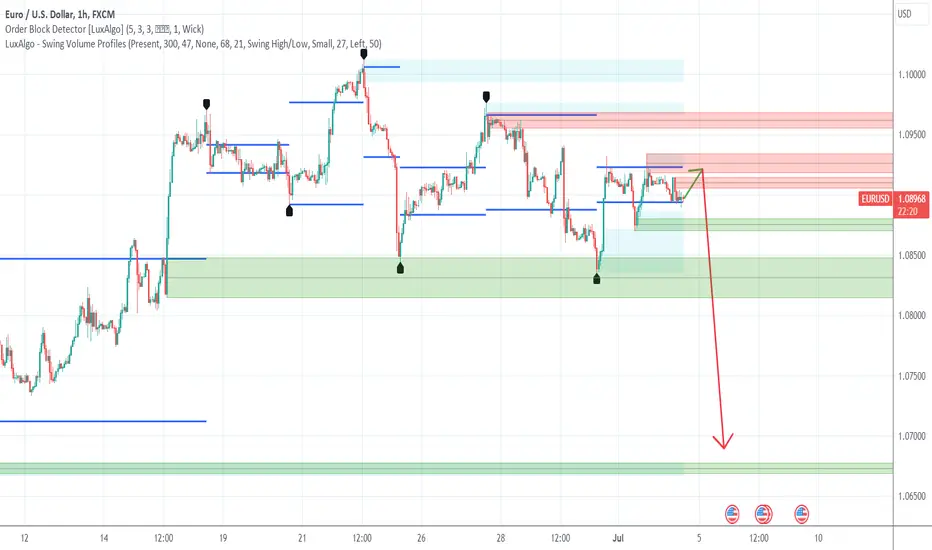The euro, the second most traded currency in the world, is currently experiencing a significant downturn. The eurozone, a strong economic bloc boasting some of the world's most robust economies, is now facing turbulence, putting the strength of the euro under unprecedented strain. For several reasons, analysts and investors are growing increasingly skeptical about the euro's short-term prospects, prompting the suggestion that it might be the right time to sell the currency.
The economic slowdown in several major European economies, growing political uncertainty, and the eurozone's struggle to respond to these challenges effectively are the key reasons behind the euro's current weakness. The euro's depreciation is not an isolated phenomenon but a reflection of the broader economic landscape in the eurozone.
In terms of growth, many significant economies in the eurozone have struggled to regain momentum after the economic disruptions of the COVID-19 pandemic. Italy, Spain, and even powerhouses like Germany and France have seen their growth stagnate, putting pressure on the single currency. High unemployment rates, a slowdown in consumer spending, and fragile investor confidence further amplify these challenges.
The political landscape across the eurozone is another factor influencing the euro's strength. Political instability, the rise of populist parties, and internal divisions on key issues such as immigration, fiscal policy, and the future of the European Union itself are causing uncertainty. Markets abhor uncertainty, and this political turmoil has been reflected in the euro's performance.
In addition, there are concerns about the European Central Bank's (ECB) ability to navigate these challenges. The ECB's policy response, including low or negative interest rates and extensive bond-buying programs, was initially successful in providing stability. However, these policies are now facing diminishing returns and raising questions about the bank's ability to effectively manage inflation and stimulate economic growth. This further underlines the weakness of the euro and reinforces the case for selling the currency.
From an investor perspective, the declining euro presents both risks and opportunities. The current weak state of the euro suggests that now may be an opportune time to sell. For those holding significant amounts of the euro, selling now may be the best way to minimize potential losses should the euro continue to depreciate. On the other hand, it is crucial to note that currency markets can be extremely volatile and are influenced by a wide range of factors, both predictable and unpredictable. Therefore, any decision to sell should be based on careful analysis of market trends and individual risk tolerance.
The weakness of the euro is an ongoing story in the world of finance. The currency's future will largely depend on how the eurozone's economic and political problems are resolved. For now, though, the case for selling the euro appears to be a strong one.
The economic slowdown in several major European economies, growing political uncertainty, and the eurozone's struggle to respond to these challenges effectively are the key reasons behind the euro's current weakness. The euro's depreciation is not an isolated phenomenon but a reflection of the broader economic landscape in the eurozone.
In terms of growth, many significant economies in the eurozone have struggled to regain momentum after the economic disruptions of the COVID-19 pandemic. Italy, Spain, and even powerhouses like Germany and France have seen their growth stagnate, putting pressure on the single currency. High unemployment rates, a slowdown in consumer spending, and fragile investor confidence further amplify these challenges.
The political landscape across the eurozone is another factor influencing the euro's strength. Political instability, the rise of populist parties, and internal divisions on key issues such as immigration, fiscal policy, and the future of the European Union itself are causing uncertainty. Markets abhor uncertainty, and this political turmoil has been reflected in the euro's performance.
In addition, there are concerns about the European Central Bank's (ECB) ability to navigate these challenges. The ECB's policy response, including low or negative interest rates and extensive bond-buying programs, was initially successful in providing stability. However, these policies are now facing diminishing returns and raising questions about the bank's ability to effectively manage inflation and stimulate economic growth. This further underlines the weakness of the euro and reinforces the case for selling the currency.
From an investor perspective, the declining euro presents both risks and opportunities. The current weak state of the euro suggests that now may be an opportune time to sell. For those holding significant amounts of the euro, selling now may be the best way to minimize potential losses should the euro continue to depreciate. On the other hand, it is crucial to note that currency markets can be extremely volatile and are influenced by a wide range of factors, both predictable and unpredictable. Therefore, any decision to sell should be based on careful analysis of market trends and individual risk tolerance.
The weakness of the euro is an ongoing story in the world of finance. The currency's future will largely depend on how the eurozone's economic and political problems are resolved. For now, though, the case for selling the euro appears to be a strong one.
Disclaimer
The information and publications are not meant to be, and do not constitute, financial, investment, trading, or other types of advice or recommendations supplied or endorsed by TradingView. Read more in the Terms of Use.
Disclaimer
The information and publications are not meant to be, and do not constitute, financial, investment, trading, or other types of advice or recommendations supplied or endorsed by TradingView. Read more in the Terms of Use.
